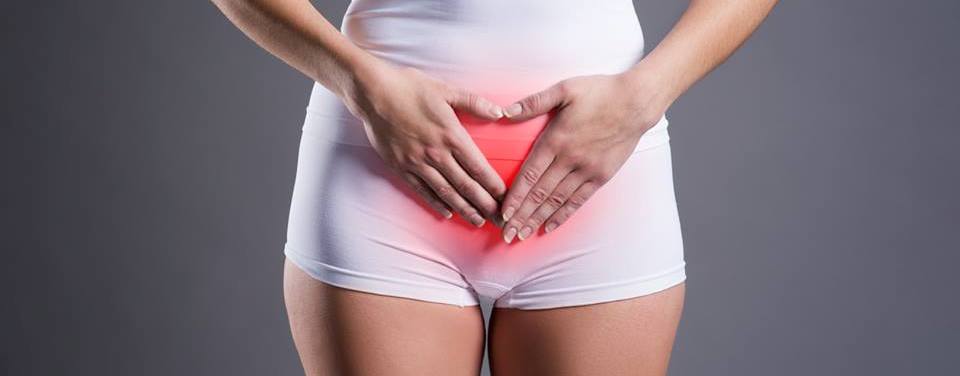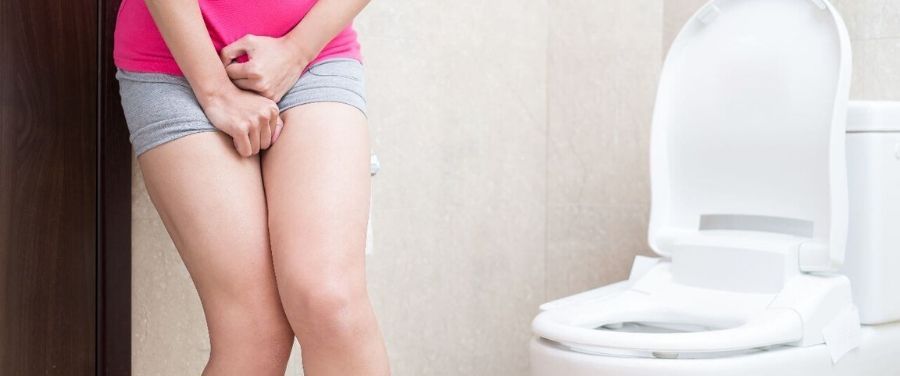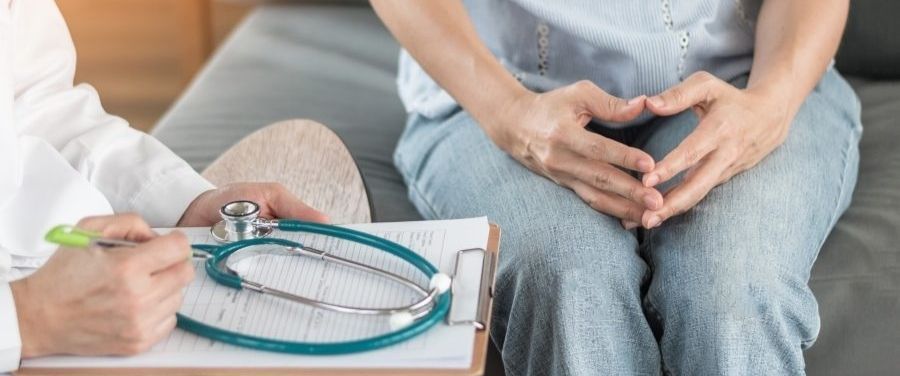WHAT IS MENOPAUSE?
Menopause means the end of menstrual cycles or periods. It is considered menopause if there is no menstrual cycles or period for a year. Millions of women undergo menopause every year. This is a process that occurs around the age of 50 and cannot be controlled. Menopause stops ovulation in women and they cannot become pregnant after this condition.
In this article, we will talk about the symptoms of menopause and measures to control them. Along with this, the correct age of menopause and its treatment.
The symptoms of menopause may be vaginal dryness, sleeplessness, loss of libido and headache. Depending on the condition, some women may also have more severe symptoms, including — bone pain and osteoporosis.
Mostly, the symptoms of menopause can be controlled. If they are not controlled, hormone replacement therapy is available for them, which gives some degree of comfort. However, these therapies also have their own side effects, including the risk of getting cancer.
WHAT IS THE AGE FOR MENOPAUSE?

The exact age of menopause depends on the health of woman, hormones and their geographical area. This age varies from woman to woman. Indian women are more likely to have menopause than women in Western countries.
The average age of menopause for women around the world is 51, but for women in India, this age is 46.2 years. You can have menopause anytime from 45 to 50 years of age. Premature menopause can also be a concern.
Premature menopause not only reduces fertility, but also increases the risk of osteoporosis. For this reason, it is necessary that you keep yourself mentally ready for menopause, so that its symptoms can be controlled. Menopause can be detected by abnormal menstruation, such as irregular menstruation, or abnormal changes in bleeding.
Having a high body mass index (BMI), high fat in the upper body, or taking birth control pills increases the age of menopause. This means that women who have a heavier lower body are more likely to have menopause early. In addition, lower class women are more likely to have early menopause who have not given birth.
To control the symptoms of premature menopause, women are given vitamin D and calcium supplements according to their health status before menopause. However, do not take these supplements without doctor’s advice. Apart from this, it is also necessary to make some lifestyle changes on time.
WHAT CAUSES MENOPAUSE?
The reason for having menopause is the change in hormonal activities which causes ovulation and menstruation.
As a woman ages, the amount of follicles that develop every month in her body begins to decrease, causing abnormal menstrual symptoms before menopause. Follicles release eggs from the ovaries. After the age of 40, fewer follicles begin to develop and gradually decrease.
Finally, these follicles stop developing, which causes menstruation to stop.
WHAT ARE THE SYMPTOMS OF MENOPAUSE AND HOW TO DEAL WITH THEM?
Most of the symptoms associated with menopause are actually experienced during perimenopause. These symptoms are caused by the reduced production of estrogen and progesterone hormones.

Some women don’t feel any kind of unbearable symptoms, but some women find these symptoms very painful. They are experienced before menopause or until a few years later. Symptoms of menopause vary from woman to woman. These symptoms affect you physically, mentally and emotionally —
1. Hot Flashes:
The primary symptom that many women feel during menopause is a hot flash. In this condition, the body starts feeling warm and you may feel this in your upper body or all over the body. You experience redness on the face and neck, and sweating also occurs.
The problem of hot flash is sometimes so much that it can wake you from sleep. Most women have experienced this symptom for 1-2 years after menopause. If it is unbearable, then you must take the advice of a doctor, who can tell you better remedies.
2. Vaginal Dryness and Pain:
Reduced production of female hormones, estrogen and progesterone, affects the outer thin layer of the vagina (which provides moisture to the vagina). Vaginal dryness can be experienced anytime in women, but during menopause it is a special problem. During this time, you may experience itching , pricking, burning sensation etc. around the vagina or vulva.

Dryness in the vagina causes excessive pain during sex and sometimes you also get frequent urination. Use a vaginal moisturizer to deal with this dryness. If you are still not getting relief after doing this then consult a doctor. Performing sex or sexual activities increases blood circulation at the place where vagina prevents the problem of dryness.
3. Insomnia:
It is very important to sleep about 7-8 hours to stay healthy, but sleeplessness is a common problem during menopause. Sometimes you wake up early or do not sleep at bedtime. So exercise as much as possible and keep yourself busy.
Keep the cellphone away while sleeping because it is a big reason that don’t make you sleep. Bathing, reading, listening to melodious music before sleeping helps one to sleep well. The best way to get sleep is to get into the habit of sleeping on time and avoid consuming foods that run away from sleep such as caffeine, chocolate, alcohol etc. before bedtime.
4. Frequent Urination:
It is common to lose control of your bladder during menopause. You have a feeling of urinating before the bladder is full and there is pain during this situation.

It is caused by menopause because your vagina and bladder leave flexibility and the muscles of surrounding pelvis also become weak. To get relief from frequent urination problem, avoid excessive alcohol consumption, drink plenty of water and keep the pelvic muscles strong with the help of kegel exercises.
5. Urinary Tract Infection:
Some women may experience urinary tract infections (UTIs) during menopause. At this time low levels of estrogen and changes in urinary tract make you eligible for infection. Contact the doctor without delay in case of infection.
6. Vaginal Atrophy:
Vaginal atrophy is a condition in which the vaginal lining becomes extremely thin and swollen due to a decrease in estrogen production. Having sex during this time causes unbearable pain. This can cause a decrease in libido. Some remedies such as estrogen therapy can be overcome by using estrogen cream.
7. Depression:
During menopause, hormonal changes in women are characterized by rapid mood changes, depression, irritability, and extreme agitation. Keep in mind that due to these hormone changes your brain can also be affected which can prove to be very harmful for you. Avoid this stage.
8. Loss of Libido:
Decreased interest in sex during menopause is common as it is due to a decrease in estrogen levels. Some women may be more interested in sex during this period, but if your loss of libido is due to some other reason such as pain during sex etc. then you should consult a doctor.
9. Hair, Skin and Other Tissue Changes During Menopause:
As you grow older, you feel the difference in your skin and hair. Due to fat tissue and collagen, the skin becomes dry, thin and due to this, the skin of the vagina and urethra becomes loose. Due to lack of estrogen, the problem of hair breakage and dryness occurs. In this condition, you should avoid the use of chemical substances in hair.
ARE THERE ANY BENEFITS TO MENOPAUSE?
The negative symptoms of menopause are widely talked about, but there are some good symptoms as well; including —
- Some women, especially those who have had too many periods before, usually experience better health after menopause
- Women who have irregular periods or who take birth control pills feel comfortable after menopause
- One positive effect of menopause is that you do not have to worry about contraception, which can have a positive effect on your sexual relationships
- After menopause, women spend one-third of their lives, so it is necessary that they remain happy and emotionally satisfied
WHAT ARE THE TREATMENTS OF MENOPAUSE?
Menopause is a natural process of the body, so women who have menopause at the right age do not need any treatment. However, some women seek treatment due to the severity of symptoms. In this case, following treatments are available for menopause —

Hormone Replacement Therapy (HRT):
Hormone replacement therapy is an effective treatment that relieves most of the menopause symptoms. In this therapy, only estrogen and progestin are combined and given as tablets, patches or injections.
However, after discontinuing the therapy the symptoms start recurring and this therapy has its own side effects, including the risk of breast cancer and heart disease.
Estrogen Cream:
Estrogen cream is an effective remedy for skin-related symptoms, such as dryness of the vagina. This cream should be used two or three times a week or as directed by the doctor.
Phytoestrogens and Black Cohosh:
Phytoestrogens are naturally occurring foods that help to control symptoms that occur after menopause, such as vaginal dryness and hot flashes. It also reduces the risk of osteoporosis in women. Most fruits and vegetables contain phytoestrogens, but they have been found in quantities made from soybeans. Some herbs and natural methods are also used by women, such as black cohosh, to control menopause symptoms. However, medicine or natural substances should not be taken without doctor’s advice.
FINAL WORDS
Menopause is a natural process and you can’t stop this. For this reason, it is better to take any treatment for menopause, prepare yourself mentally to cope with the symptoms of this natural process and consult your doctor to control the symptoms.
RELATED ARTICLES:
- Fishy Vaginal Odor : Get Rid of Smelly Vagina
- Masturbation Benefits, Side-Effects and Much More
- Leukorrhea : Causes, Symptoms and Effective Treatments
- Loose Vagina : Causes, How to Tighten Up, Kegal Exercise and More
REFERENCES:
- Menopause, Medicine Net, Medical Author: Melissa Conrad Stöppler, MD Medical Editor: William C. Shiel Jr., MD, FACP, FACR
- Menopause, Mayo Clinic, Aug. 07, 2017
- What Is Menopause?; National Institute of Aging, Content reviewed: June 27, 2017
- Menopause, Office of Women’s Health
